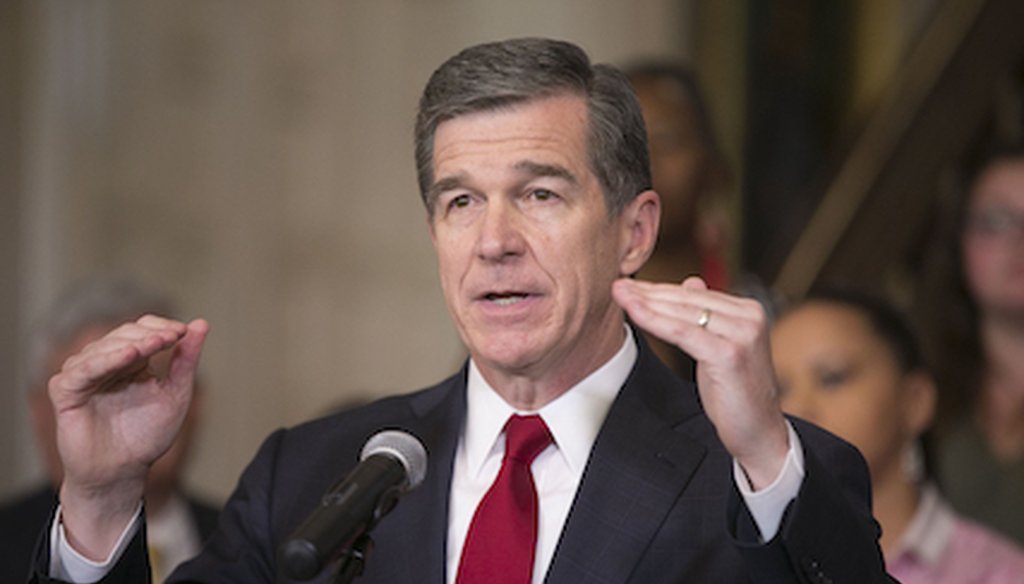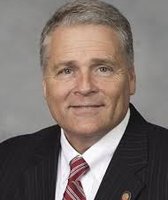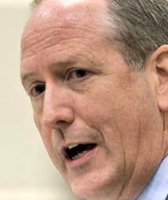Get PolitiFact in your inbox.

North Carolina Governor Roy Cooper speaks during a press conference at the Executive Mansion on June 26 in Raleigh, N.C.
While Gov. Roy Cooper and many Democrats are intent on expanding Medicaid to provide health insurance to hundreds of thousands of North Carolinians, Republicans in the legislature fear Medicaid expansion becoming a fiscal disaster for the state and the country.
Since the Affordable Care Act was passed in 2010, 33 states and the District of Columbia have expanded Medicaid. Additionally, voters in three more states have approved Medicaid expansion but those states have not yet implemented the program. North Carolina has declined to go along, but some Republicans in the state House of Representatives have sponsored a bill that could expand government health insurance and that was moved forward by a committee Tuesday.
However, Medicaid expansion remains a key factor in the budget standstill between Cooper and the legislature. Here’s what you need to know about Medicaid expansion in North Carolina.
What is Medicaid?
Medicaid is a federal health insurance program administered by the North Carolina Department of Health and Human Services for people who could not afford insurance on their own.
A common misconception about Medicaid is that it provides bad health care, said Donald H. Taylor, Jr., a professor of health policy at Duke University. It is just a health insurance program like any other — patients with Medicaid simply go to doctor’s offices that accept Medicaid as an insurance plan for treatment, he said. The state’s Division of Health Benefits lists more than 3,000 primary care providers in North Carolina that accept Medicaid.
As it stands now, the federal government covers about two-thirds of the $14.8 billion program covering 2.1 million people in North Carolina.
Most people who currently qualify for Medicaid are people with disabilities, pregnant women or low-income families with children. Medicaid expansion would mostly benefit low-income adults without children.
Medicaid is different from Medicare, which is mostly aimed toward people over the age of 65, people with disabilities and those with end-stage renal disease.
What would Medicaid expansion do?
The Affordable Care Act, also known as Obamacare, gives states the option to expand Medicaid eligibility to people who are below 133% of the federal poverty level, which in 2015 was about $2,743 a month for a family of four.
(We should note that some sources may say that Medicaid would be expanded to 138% of the federal poverty level; this is also correct but uses a different methodology to calculate income, as called for by the Affordable Care Act.)
A study by the George Washington University, the Cone Health Foundation and the Kate B. Reynolds Charitable Trust estimated that 634,000 more people would gain Medicaid coverage by 2022 if North Carolina expanded Medicaid in November 2019.
Medicaid expansion would address the "coverage gap," for a group of people whose income is too high to qualify for Medicaid right now, but who don’t have enough money to get federal subsidies for private insurance. Most of these people lack a primary care doctor and often have to depend on going to the emergency room for all ailments, which is both inefficient and expensive for hospitals.
How will Medicaid expansion be funded?
According to Cooper’s 2019-2020 budget proposal, Medicaid expansion would cost $2.13 billion, with $1.91 billion covered by federal funds.
Ninety percent of expansion would be covered by the federal government, and the remaining 10 percent would be covered by hospitals and health care plans, according to the governor.
The share covered by the federal government is supposed to be covered by federal taxes which North Carolinians pay anyway. Legislators opposed to Medicaid expansion have voiced their concern that this funding will not last forever.
Will the money continue?
Republicans who maintain that they do not want to expand Medicaid point to a number of reasons, including the national debt.
Instead of using that money to address the debt before it gets worse, legislators around the country are exacerbating the problem by expanding Medicaid, said Christopher Conover, a research scholar at Duke University’s Center for Health Policies and Inequalities Research.
"I think what we’re going to discover is in 10 years or 15 years, the feds are going to wake up and realize they can’t continue bankrolling these programs," Conover said.
Legislators opposed to Medicaid expansion are skeptical of how much they can rely on the federal government to continue paying its 90 percent share. In 2018, cuts in federal funding for North Carolina’s Children’s Health Insurance Program put pressure on the state to cover the deficit instead. Legislators opposed to Medicaid expansion fear the same thing will eventually happen with Medicaid.
The Children’s Health Insurance Program’s enhanced federal funding was designed to temporarily increase starting in 2015 to encourage states to expand their plans for children but was supposed to end in 2019. The federal government’s 90% match rate has no end date for Medicaid expansion. The legislation simply says the government will pay its share "for calendar quarters in 2020 and each year thereafter." It would require authorization from Congress to change the match, which is currently unlikely.
Even if this does happen, many states have passed legislation that would allow them to back out of Medicaid expansion if the federal match were to change, which North Carolina could do as well.
Would it bring jobs?
The governor has held roundtable discussions with health-care providers and business leaders to discuss the benefits of Medicaid expansion to the state’s economy.
The News & Observer previously reported on a study that predicted Medicaid expansion could bring 37,200 more jobs into the state. Additionally, many proponents of Medicaid expansion say that premiums for people with private health insurance will go down once hospitals do not have to pay for uninsured people who use the emergency room and then cannot afford the bill.
How has expansion impacted the budget standoff?
Cooper has been persistent in his fight to expand Medicaid. But the Republican-majority General Assembly passed a budget in June that did not include Medicaid expansion, among other things Cooper wanted. Cooper vetoed that budget.
"I stand ready to negotiate a true compromise. And to do that, everything – Republican priorities and Democratic ones – must be on the table. No one will get everything they want, but I know that if we come together and negotiate in good faith, we can do better," Cooper said in a news release following his veto.
A new fiscal year started July 1. If Cooper and the legislature cannot compromise on a budget, state government will continue to run on last year’s budget.
Is the GOP plan Medicaid expansion?
The House Health Committee moved forward a Republican-sponsored health care compromise Tuesday that could expand government health insurance for people with low incomes.
The bill, known as NC Health Care for Working Families, Carolina Cares or House Bill 655, expands health insurance for people up to 133% percent of the poverty line — with restrictions. Recipients of Carolina Cares must be employed, pay 2% of their household income in an annual premium, meet federal citizenship and immigration standards and be active in preventative care.
The bill is sponsored by Republicans Reps. Donny Lambeth, Josh Dobson and Donna McDowell White. Both Lambeth and White have experience in the medical field. White is a registered nurse and Lambeth was president of Lexington Medical Center and Davie Hospital.
While the bill is not the traditional Medicaid expansion championed by Cooper because of its numerous requirements, it is a type of Medicaid expansion, Taylor said.
"The word ‘Medicaid’ has been stigmatized by conservatives," Taylor said. "I do think it is Medicaid expansion."
Conservative opposition is an obstacle to the bill in the state Senate. Meanwhile, other critics of the bill say it is too stringent, especially because of its employment requirement, which they say excludes people who might be too sick to work. Taylor objected to the 2% premium, which he said would probably cost more to collect than the amount of money it would raise.
However, this compromise plan could be a good path to a deal, Taylor said.
This story has been updated with additional information about states’ Medicaid expansion and the North Carolina Children’s Health Insurance Program.
This story was produced by the North Carolina Fact-Checking Project, a partnership of McClatchy Carolinas, the Duke University Reporters’ Lab and PolitiFact. The NC Local News Lab Fund and the International Center for Journalists provide support for the project, which shares fact-checks with newsrooms statewide. To offer ideas for fact checks, email [email protected].
Our Sources
Basic Medicaid Eligibility Chart 2019 from the North Carolina Medicaid Division of Health Benefits, April 1, 2019.
"Credibility Crisis: Far-Left Publication Compares Lack of Medicaid Expansion to Jim Crow Era," press release by Joyce Krawiec on June 18, 2019.
"Fact vs Fiction: Democrats' Twitter Claims About Medicaid Expansion," press release by state Sen. Dan Bishop on June 24, 2019.
"Governor Cooper Vetoes GOP Budget that Fails on Public Education, Health Care and the Economy," press release by Gov. Roy Cooper, June 28, 2019.
"House Bill 655: NC Health Care for Working Families," primarily sponsored by Donny Lambeth, Josh Dobson and Donna McDowell White, 2019-2020 Session.
"Medicaid expansion projected to bring jobs to every NC county, and not just in health care" by Elizabeth Thompson, June 26, 2019.
"Myths vs Facts on Medicaid Expansion," press release by Gov. Roy Cooper on April 23, 2019.
Phone interview with Christopher Conover, a research scholar at Duke University’s Center for Health Policies and Inequalities Research, July 9, 2019.
Phone interview with Jordan Roberts from the John Locke Foundation, July 8, 2019.
Phone interview with Don Taylor, professor of Public Policy at Duke University, July 9, 2019.
"Republicans offer Medicaid expansion compromise. Governor calls it a ‘step forward.’" By Dawn Baumgartner Vaughan and Lauren Horsch, July 9, 2019.































